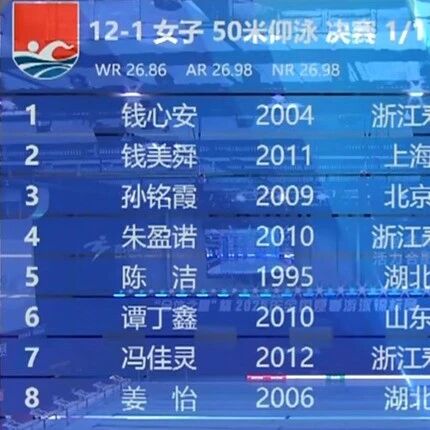National Games | Team Leader Reveals: Why Guangdong Diving Still "Didn't Win Enough"?
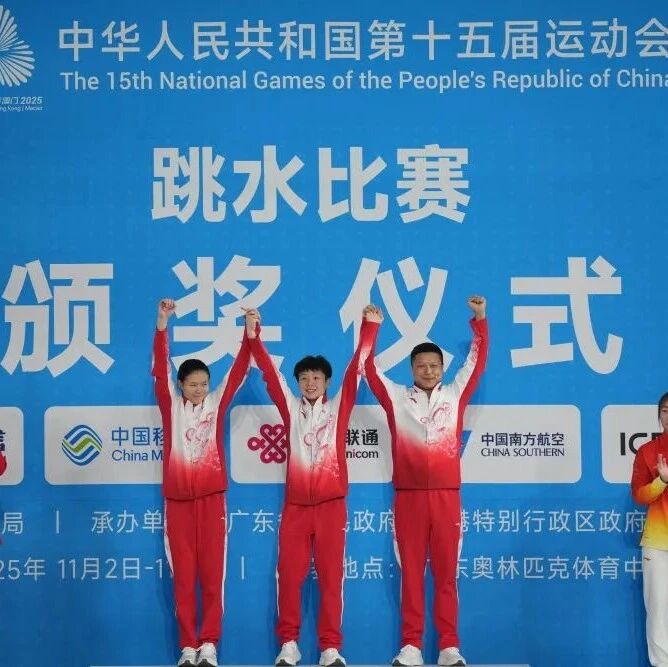
GUANGZHOU, Nov. 10 (Xinhua) — Reporters Zhou Chang, Ma Sijia, and Cheng Nan: As the diving events of the 15th National Games draw to a close, Guangdong team has delivered impressive performances: successfully defending their women’s team title, claiming the men’s team’s eighth consecutive National Games championship, clinching the women’s individual all-around gold medal, and sweeping both the men’s and women’s synchronized 3-meter springboard titles…
Boasting veteran stars like Xie Siyi and Chen Aisen, seasoned athletes including Chen Yiwen and Lin Shan, and rising talents such as Huang Bowen, Zhu Zifeng, Hu Yukang, Yan Siyu, and Huang Jianjie—plus the immensely popular athlete Quan Hongchan—the Guangdong diving team has produced multiple Olympic champions and continues to supply top talent to the national squad. But what makes the "Guangdong Army" so formidable? Xinhua News Agency recently conducted an exclusive interview with Ling Haichan, the head coach of the Guangdong diving team, to explore the secret behind their success.
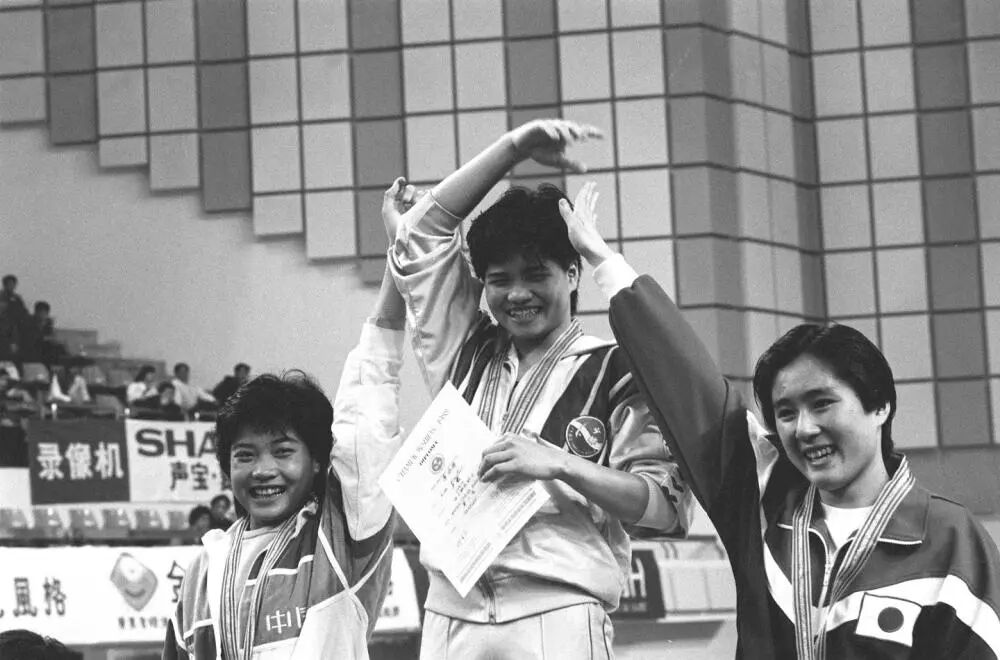
Ling Haichan, 54 this year, began diving in second grade and joined the Guangdong Provincial Diving Team in 1982. A versatile athlete who excelled in both springboard and platform events, she went on to win numerous gold medals at domestic and international competitions. After retiring in 1992, she transitioned into coaching, where over the past three decades, she has nurtured multiple Olympic champions, including Lao Lishi, Zhang Yanquan, and Chen Aisen. Notably, Lin Shan, who partnered with Chen Yiwen to claim the women’s synchronized 3-meter springboard title at this year’s National Games, is currently one of her athletes under training.
"The Guangdong diving team has been nurtured over generations by our seniors and coaches," said Ling Haichan, who herself grew from a young athlete into a coach and team leader.
The Guangdong diving team was established in 1956, making it one of the earliest provinces in China to field a dedicated diving squad. "In the past, there were no indoor diving venues, so everyone trained outdoors," says Ling Haichan. "Guangdong enjoys weather conditions ideal for outdoor training from May to October—giving us a natural advantage over regions in the north."
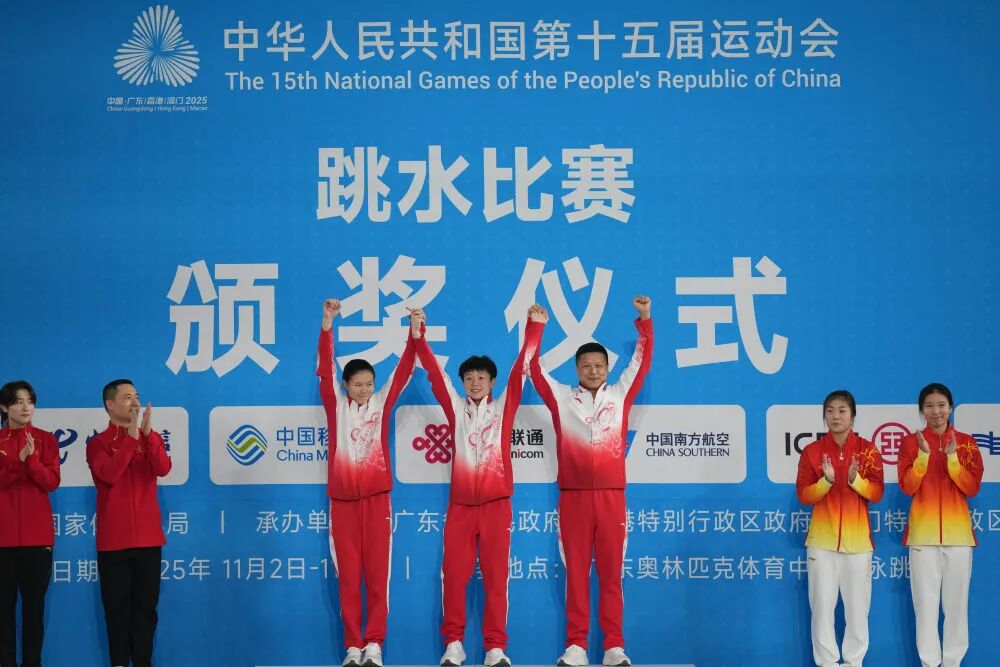
Beyond its climatic advantages, cities like Guangzhou, Zhanjiang, and Shenzhen have established diving talent selection bases with a broad recruitment network, laying a solid foundation for Guangdong's deep pool of diving expertise.
The Guangdong diving team, still hungry for more victories, has already begun preparing for the next National Games. Ling Haichan said: "We have numerous training centers and many sports schools. Right now, around 300 to 400 athletes are eligible to compete in provincial-level events. After the National Games wrap up, we’ll head straight to each of these sports schools to kick off a new round of talent scouting."
After selecting the "talent," how can we improve their skills and manage their mindset? The coaching team plays a crucial role in this process.
Ling Haichan said that in the Guangdong team, most of the coaches have grown up within the team itself, fostering mutual familiarity and making communication and collaboration much smoother.
“My former student is now coaching on the team—it’s a legacy passed down through generations,” she shared candidly. “Being a coach means ‘honing skills over time.’ Only when athletes have solid fundamentals can they start tackling more challenging moves—and of course, we also focus on perfecting the finer details of their techniques while ensuring that every performance looks graceful and beautiful.”
In her view, a coach not only needs to be technically proficient but also adept at tailoring their approach to each athlete’s unique strengths and challenges—while constantly keeping an eye on the players’ mental well-being. Beyond competition, coaches must also pay close attention to their athletes’ diet, daily routines, and even their everyday emotions, often acting "both as parents and as teachers."
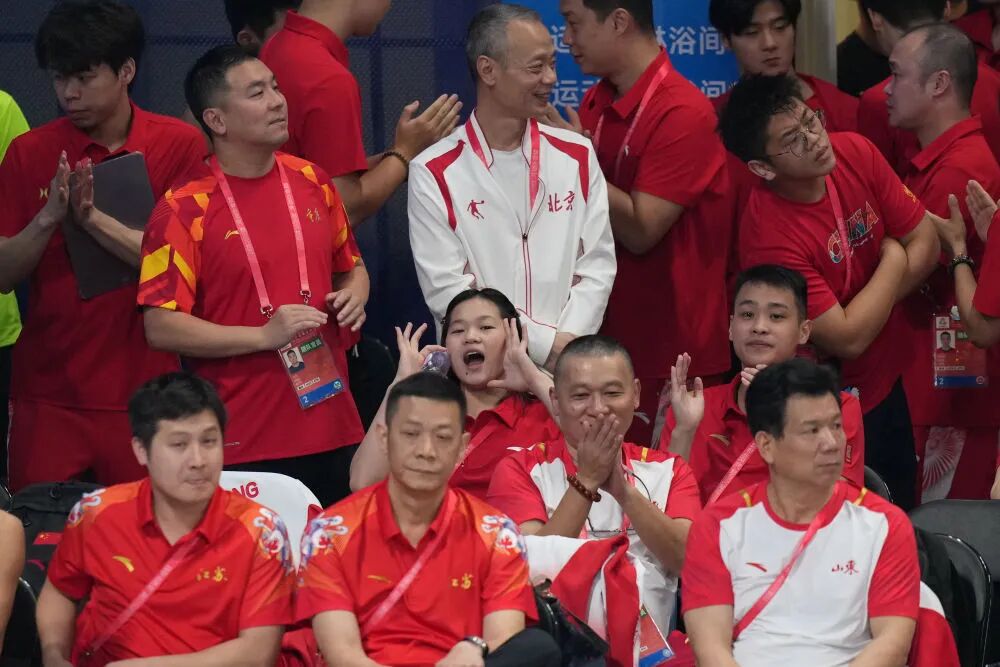
At the National Games arena, Guangdong's diving team members often share heartwarming moments. Quan Hongchan helps Xie Siyi take care of his child and cheers enthusiastically for her teammates from the stands, while Chen Yiwen occasionally lends her camera to capture photos of her teammates when she’s not competing herself. Meanwhile, the athletes frequently fondly mention how veteran players like "Brother Xie" (Xie Siyi) and "Brother Sen" (Chen Aisen) have supported and inspired them throughout their journey.
“Our coach and team members are like family—everyone supports and helps each other, while the younger players learn from the veterans. Together, we pull as one for the sake of the team.” Smiling as she reflects on the team’s atmosphere, Ling Haichan adds, “To be honest, winning both the men’s and women’s team gold medals at this National Games was incredibly pressure-packed—but we all worked together seamlessly. Of course, mistakes happen now and then, but that’s when we step up to cover for each other.”
“Unity,” “feeling like family,” and “like brothers and sisters”—these are also the shared feelings of the team members.
He Yanwei, a member of the "Post-00s" generation, advanced to the women's 1-meter springboard final at this year's National Games. In a post-match interview, she highlighted the influence of her senior teammates on her journey. "Their unwavering determination and relentless persistence during training truly move me. Whenever we struggle with certain techniques, watching them demonstrate the moves firsthand feels like having a textbook right in front of us."
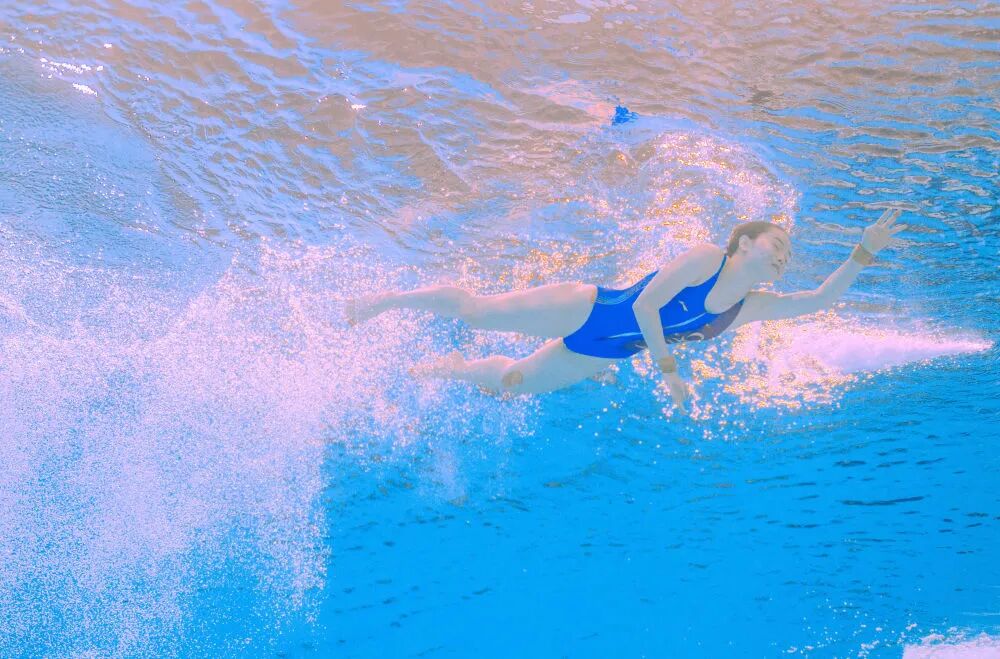
National team athletes like Xie Siyi continue to give back to their hometown teams, sharing their high-level skills and training methods with younger members. "The Guangdong team is like a big family. I hope every young athlete thrives, and I’m eager to pass on all my experience—after all, this mentorship model helps strengthen our team and brings everyone closer together," Xie Siyi said.
Strong logistical support is also one of the key factors in improving performance. "Medical staff, nutritionists, and other specialized support personnel are incredibly important," says Ling Haichan. With advancements in technology, the team’s nutrition plans, training programs, and rehabilitation strategies have become far more scientific. Athletes now wear protective gear during practice to minimize injury risks, while high-quality filming equipment allows for easy review and analysis of training sessions at any time.
Under the joint efforts of all parties, Guangdong's decades-old diving tradition has been successfully passed down.
Throughout the stands of Guangdong Olympic Sports Center Swimming and Diving Arena during the 15th National Games, Guangdong athletes were always present to watch. Their enthusiastic cheers and encouragement echoed loudly across the venue, making them a truly outstanding "cheer squad."
"Our team’s youngest athlete in the stands is just 11 years old," said Ling Haichan. "Every National Games and every match offers valuable lessons we can learn from. Our young, by observing and adopting the strengths of others, can continuously improve themselves while staying motivated. We hope to nurture more outstanding athletes who will go on to represent the national team in major competitions, gaining invaluable experience and proudly bringing glory to our country."
Related Articles
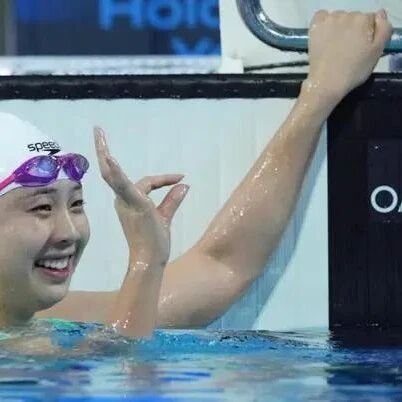
2024 Short Course World Championships Day 2 Recap: Tang Qianting breaks the Asian record in the 100m breaststroke, while Qin Haiyang advances to the semifinals in second place.
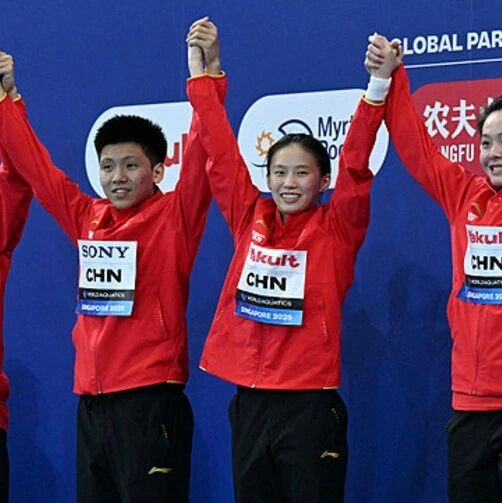
Singapore World Swimming Championships: "Dream Team" Claims First Gold! China Wins Diving Mixed Team Title
